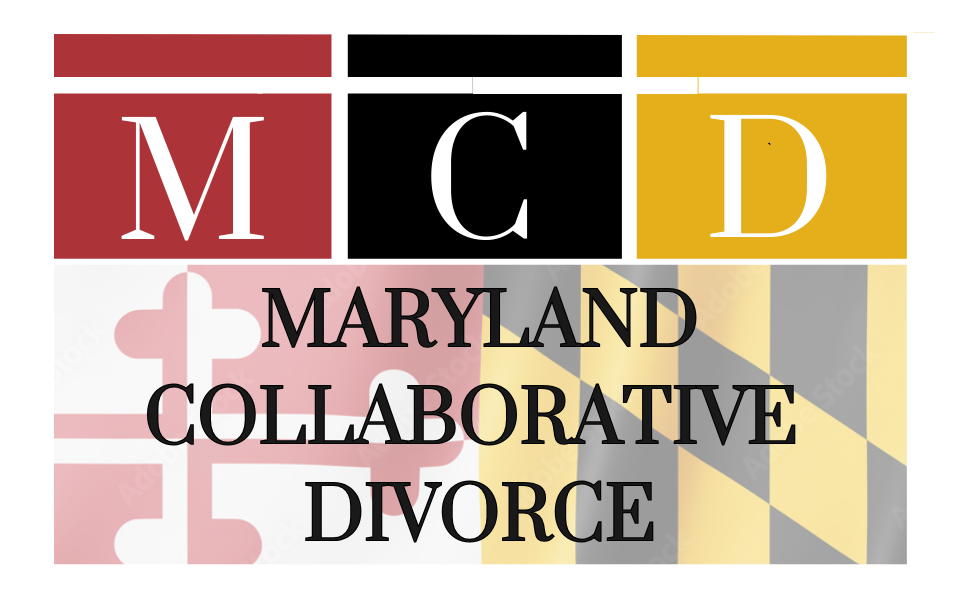The guest author of this article is Berni Stevens, PhD, CDFA®, Principal, TruNorth Divorce Solutions.
Are you considering divorce but dread the thought of courtroom drama? There’s another approach besides mediation that you may want to consider. Welcome to the world of collaborative divorce – a kinder, gentler way to say goodbye to your marriage. Let’s dive in and explore why this might be the Goldilocks solution you’re looking for!
What is Collaborative Divorce?
Many couples consider the possibility of mediation before engaging in divisive litigation. But what if mediation doesn’t seem just right? You can still divorce your spouse without divorcing your bank account or your sanity. Think of collaborative divorce as a divorce party where everyone’s invited – you, your soon-to-be-ex, a couple of lawyers, and a team of professionals who aren’t there to judge you (unlike your in-laws).
Why Choose Collaborative Divorce?
- Less Drama: Save the drama for your favorite TV shows.
- More Control: Be the director of your divorce, not just an extra.
- Kinder to Kids: Because “mommy and daddy are working together” sounds better than “mommy and daddy are fighting in court.”
- Faster: Get it done quicker than you can say “irreconcilable differences.”
- Private: Keep your personal matters out of the public court records.
Assembling Your Collaborative Divorce Dream Team
Think of it as putting together an all-star lineup for Team Amicable Separation. Here’s who you’ll have in your corner:
The Stars of the Show: You and Your Soon-to-be-Ex
You’re the main characters in this divorce story. Your job? Try to keep it from turning into a tale of woe.
The Directors: Collaborative Attorneys
Think of them as your legal navigators and negotiators-in-chief.
- Legal Guidance: They explain your rights, obligations, and the legal implications of decisions.
- Negotiation: They advocate for your interests during team meetings and help craft agreements.
- Document Preparation: They draft and review all legal documents, ensuring everything is in order.
- Process Management: They keep the collaborative process on track and moving forward.
Remember, unlike in litigation, these attorneys are committed to finding mutually beneficial solutions, not “winning” at all costs.
The Financial Wizard: The Neutral Financial Specialist
This financial guru is like a treasure map reader for your assets and debts.
- Financial Analysis: They gather and analyze all financial information, creating a clear picture of the marital estate.
- Budget Creation: They help create post-divorce budgets to ensure financial stability for both parties.
- Asset Division Scenarios: They model different asset division scenarios to help you understand the long-term implications.
- Tax Implications: They explain the tax consequences of different settlement options.
- Financial Education: They help less financially savvy spouses understand complex financial matters.
- Retirement Planning: They assist in dividing retirement accounts and planning for post-divorce retirement.
The Emotion Tamers: Divorce Coaches
Consider them your emotional Sherpas, guiding you through the psychological terrain of divorce.
- Emotional Support: They help you process the emotional aspects of divorce.
- Communication Skills: They teach effective communication techniques to use with your ex-spouse.
- Conflict Management: They provide strategies for managing conflict during and after the divorce.
- Future Planning: They assist in setting goals for your post-divorce life.
- Stress Management: They offer techniques for managing stress and anxiety during the process.
- Reality Testing: They help you examine whether your expectations and desires are realistic.
Special Guest Stars: Other Specialists (as needed)
These are your special ops team, brought in for specific missions.
- Child Specialist: Coordinates the parenting plan and co-parenting strategies.
- Real Estate Appraiser: Provides accurate valuations of real estate properties.
- Business Valuator: Determines the value of family businesses or professional practices.
- Pension Valuator: Calculates the present value of pension and retirement benefits.
- Career Counselor: Assists a spouse who needs to re-enter the job market.
- Mortgage Specialist: Helps with refinancing homes or securing new mortgages.
- Insurance Specialist: Advises on health, life, and disability insurance needs post-divorce.
How They Work Together
Imagine all these professionals as a well-oiled machine, each part working in harmony:
- Information Gathering: Each professional collects relevant information in their area of expertise.
- Team Meetings: Regular meetings are held where all professionals share insights and work on solutions.
- Collaborative Problem-Solving: The team works together to generate options that meet both spouses’ needs.
- Client Education: Each professional ensures that both spouses understand the implications of decisions in their area.
- Agreement Crafting: The team collaborates to create a comprehensive settlement agreement.
The beauty of this team approach is that it addresses all aspects of your divorce – legal, financial, emotional, and parental – in an integrated way. It’s like having a personal board of directors for your divorce, all working towards the common goal of a fair and sustainable agreement.
Collaborative Divorce vs. Litigation: Choose Your Path!
Let’s break down how collaborative divorce stacks up against traditional litigation:
Round 1: The Process
Litigation:
- Think courtroom showdowns and judge’s gavels.
- A judge plays referee, making decisions when you can’t agree on who gets what.
Collaborative Divorce:
- More like a really intense problem-solving session.
- You and your spouse are the main characters, with a supporting cast of professionals cheering you on to a peaceful resolution.
Round 2: Cost
Litigation:
- Hope you like budget meals, because your wallet’s about to go on a crash diet.
- Court fees, lawyer fees, expert witness fees… it adds up faster than you can say “objection!”
Collaborative Divorce:
- Still not cheap, but like buying store-brand cereal instead of the name brand. It’ll do the job without completely emptying your pockets.
Round 3: Time
Litigation:
- Moves at the speed of a tortoise with a heavy shell.
Collaborative Divorce:
- Faster than litigation, slower than an impulse Vegas wedding. It’s the Goldilocks of divorce timelines.
Round 4: Emotional Toll
Litigation:
- Prepare for emotional bruising. It’s like a verbal boxing match where everyone loses.
Collaborative Divorce:
- Still emotionally challenging, but with a support team to help you navigate the emotional roller coaster.
When Litigation Might Be Your Best Bet
While we’ve been singing the praises of collaborative divorce, let’s face it: sometimes you need the big guns. Here’s when you might want to choose litigation:
- When Your Ex is Playing Hide and Seek with Assets: If you suspect your spouse is hiding assets, litigation’s formal discovery process can uncover what collaborative divorce might miss.
- When Your Ex’s Idea of Cooperation is “My Way or the Highway”: Collaborative divorce requires both parties to play nice. If your ex won’t budge, you might need a judge to lay down the law.
- When There’s Abuse in the Picture: In cases of domestic violence or substance abuse, the formal protections of the court system are often crucial.
- When You Need Decisions Made Faster Than a New York Minute: If you need emergency orders (like for custody or support), litigation can provide quick, temporary solutions.
- When Your Case Could Set a Legal Precedent: If your situation is unique and could impact future cases, litigation might be the way to go.
Collaborative Divorce vs. Mediation: When to Choose Which?
Now let’s throw another contender into the ring: mediation. Both are alternatives to traditional court battles, but they’re not one-size-fits-all solutions. Here’s when you might want to choose collaborative divorce over mediation:
- When Your Finances Are More Tangled Than Earbuds in a Pocket: Collaborative divorce brings in financial experts to untangle complex assets. Mediation might struggle with the financial equivalent of a Gordian knot.
- When You and Your Ex Communicate Like Cats and Dogs: Collaborative divorce provides individual attorneys to manage high-conflict situations. Mediators are great, but they can’t be your personal translator and advocate.
- When There’s a Power Imbalance Bigger Than David vs. Goliath: Collaborative divorce levels the playing field with individual representation. Mediation might struggle to balance the scales if one party has all the knowledge or control.
- When Your Divorce Needs More Experts Than a Hollywood Production: Collaborative divorce teams can include various specialists as needed. Mediation typically involves just one neutral party, though outside experts can be consulted.
- When You Want a Lawyer in Your Corner, Not Just on Speed Dial: In collaborative divorce, you have your own attorney throughout the process. In mediation, you might consult lawyers, but they’re not typically present during sessions.
Remember, mediation could still be your best bet if:
- You and your soon-to-be-ex can have a conversation without World War III breaking out.
- Your divorce is more “straightforward split” than “complex division of empires.”
- Your budget is tighter than your jeans after Thanksgiving dinner.
- You want a process that’s quicker than instant noodles and just as informal.
The Goldilocks of Divorce: Why Collaborative Divorce Might Be Just Right
Once upon a time, in the land of Breakupburg, there lived three divorce options: Papa Bear Litigation (too hot), Mama Bear Mediation (too cold), and Baby Bear Collaborative Divorce. Let’s explore why collaborative divorce might be the bowl of porridge that’s just right for many couples.
- Not Too Adversarial, Not Too Kumbaya: Collaborative divorce strikes a balance between the formality of litigation and the informality of mediation. You get legal representation without declaring all-out war.
- Support That’s Just Right: Unlike litigation (where you might feel like a spectator in your own divorce) or mediation (where you might feel under-supported), collaborative divorce gives you a team of professionals without overwhelming you.
- A Structure That Fits: More structured than mediation, but more flexible than litigation, collaborative divorce offers a “just right” process for many couples.
- The Right Amount of Expertise: You get the financial and child expertise you need, without the overkill of multiple court-appointed experts.
- Pace That’s Not Too Fast, Not Too Slow: Move faster than litigation allows, but take more time than mediation might to really work through issues.
- Communication That’s Just Right: More supported than the direct negotiations in mediation, but less adversarial than communication through litigation.
- A Future Focus That Fits: Unlike litigation (which looks mainly at the past and present) or mediation (which might not have the tools to plan extensively), collaborative divorce helps you create a vision for your post-divorce life that’s just right.
Is Collaborative Divorce for Everyone?
Collaborative divorce works best if you and your ex can still be in the same room without reenacting famous feuds. If you’re more “mortal enemies” than “amicable exes,” traditional litigation might be your only option.
Remember, like Goldilocks, you might need to try a few approaches before you find the one that’s just right. But for many couples, collaborative divorce offers that perfect middle ground – not too hard, not too soft, but just right for moving forward into your new life.
The Final Verdict
In the game of divorce, you don’t win or lose; you just hope to emerge with your sanity (and some of your stuff) intact. Choose wisely!
Remember, divorce doesn’t have to be a battle where the only winners are the lawyers. With collaborative divorce, you can split up and still split a pizza afterward. It’s not just a divorce; it’s a divorce with a silver lining!
So, if you’re looking for a kinder, gentler way to say goodbye to your marriage, collaborative divorce might just be your ticket to a smoother split. Who knows? You might even remain on speaking terms with your ex. My ex and I continue to share major holidays and celebrations with our adult children—over twenty-five years after the divorce! Stranger things have happened in the world of amicable divorces.

